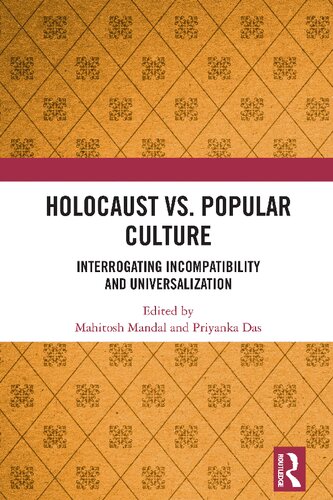

Most ebook files are in PDF format, so you can easily read them using various software such as Foxit Reader or directly on the Google Chrome browser.
Some ebook files are released by publishers in other formats such as .awz, .mobi, .epub, .fb2, etc. You may need to install specific software to read these formats on mobile/PC, such as Calibre.
Please read the tutorial at this link: https://ebookbell.com/faq
We offer FREE conversion to the popular formats you request; however, this may take some time. Therefore, right after payment, please email us, and we will try to provide the service as quickly as possible.
For some exceptional file formats or broken links (if any), please refrain from opening any disputes. Instead, email us first, and we will try to assist within a maximum of 6 hours.
EbookBell Team

4.4
12 reviewsHolocaust vs. Popular Culture debates and deconstructs the binary responses to the representation of the Holocaust in European and non-European forms of Popular Culture.
The binary is defined in terms of “incompatibility” between the Holocaust and Popular Culture on the one hand and the “universalization” of the Holocaust memory through Popular Culture on the other. The book does emphasize the anti-representation argument. Nevertheless, the authors make a case for a productive understanding of “Holocaust Popular Culture” as contributing to the expansion of Holocaust studies as well as cultural studies in the transnational context. The book theorizes Popular Culture in broad terms and highlights the diversity of Holocaust Popular Culture mainly but not exclusively produced in the twenty-first century. This interdisciplinary collection covers a wide variety of Popular Culture genres including language, literature, films, television shows, soap operas, music, dance, social media, advertisements, comics, graphic novels, videogames, and museums. It studies the (mis)representation of the Holocaust trauma, not only across genres but also across nations (Western and Asian) and generations (from testimonial remembrance to post-memory).
This book will be of interest to students and scholars from a wide range of disciplines and subjects, including Popular Culture, Holocaust studies, cultural studies, genocide studies, postcolonial and transnational studies, media and film studies, visual culture, games studies, race and ethnicity studies, memory studies, and Jewish studies.